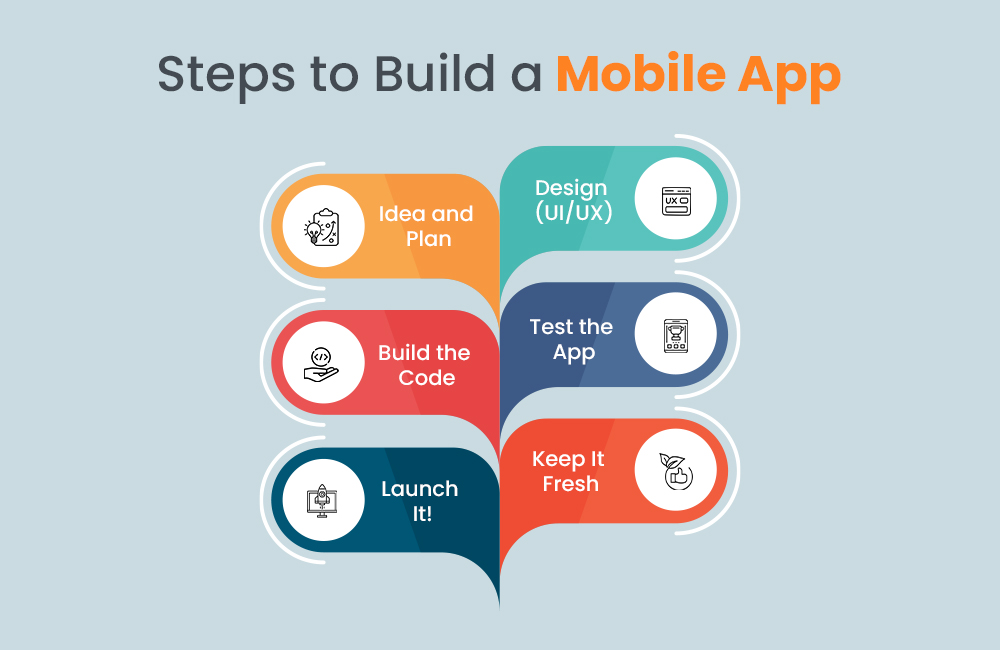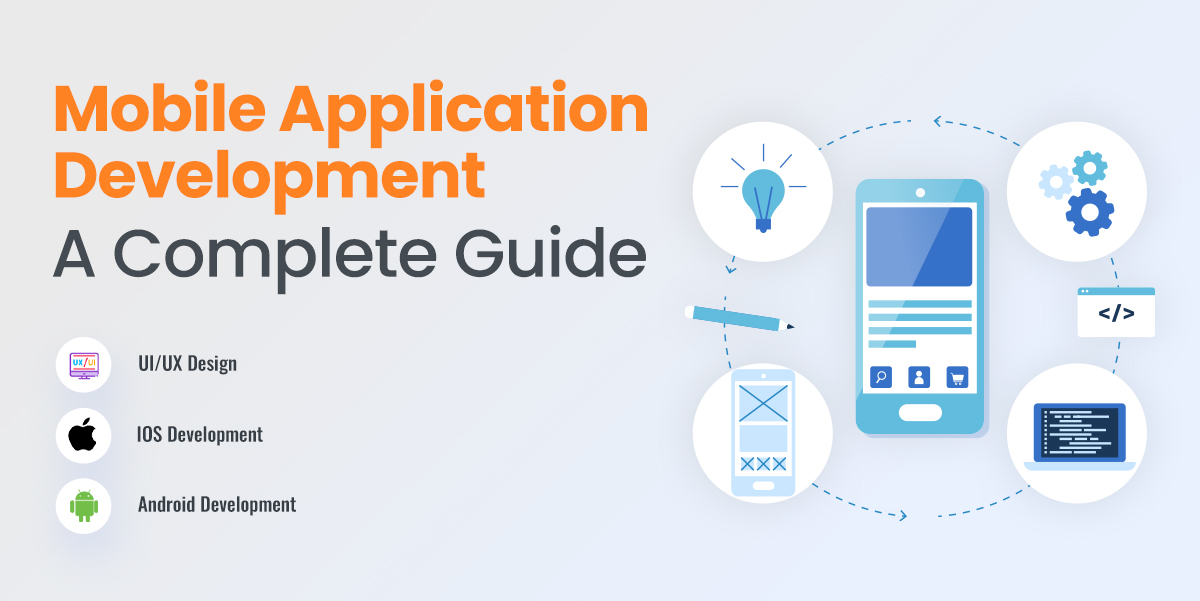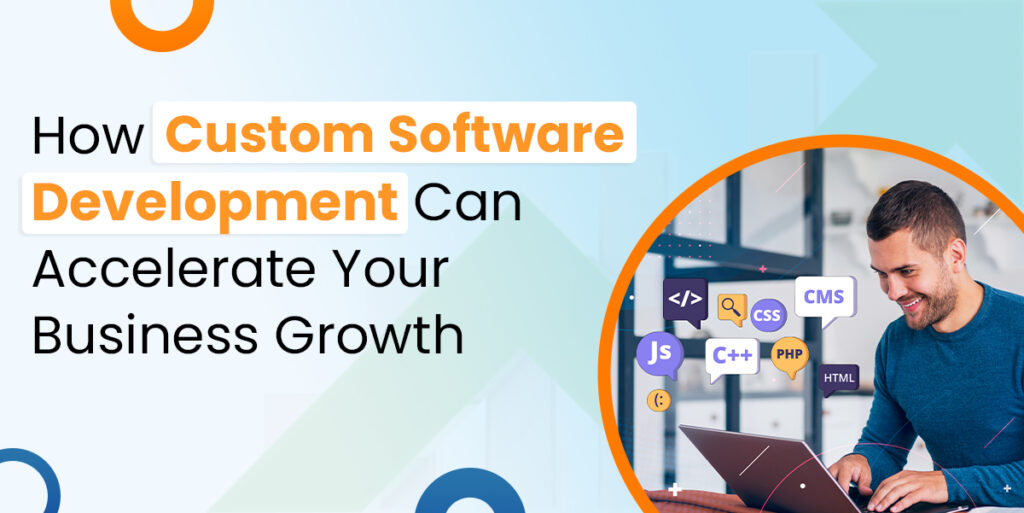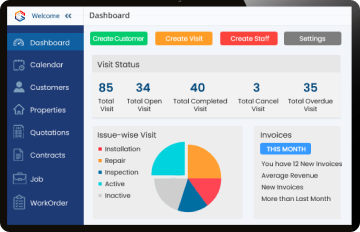Mobile apps are the small as well as big programs we use on phones and tablets every day. They help us do many things like play games, shop online, learn new skills, or stay in touch with friends and family.
Application developers from all over the world create these apps to make life easier and more fun, and this is called mobile application development. It includes planning, designing, building, and improving apps for phones. There are many kinds of apps, and each one works especially.
In this guide, you’ll learn how mobile apps are made, the tools used to build them, and why they are so important today.
Introduction to Mobile Application Development
People build mobile apps to help others use phones and tablets in fun or useful ways. These apps run on devices and allow users to do lots of things like play games, shop, or learn.
Sometimes, phones only made calls. Now, they carry powerful apps that do amazing jobs. Mobile app development helps businesses and people to stay connected in smart ways.
Types of Mobile Applications
There are different kinds of apps. Each one does something special. Let’s explore:
1. Native Apps (iOS and Android)
These apps work on just one kind of phone. Some are made for iPhones while others are made for Android phones, and some for both. They use special tools and run fast and smoothly.
2. Web Apps
Web apps open in a browser like a website. They don’t run on your phone like other apps but they still help you to do things.
3. Hybrid Apps
Hybrid apps mix web and phone app ideas. One app can work on both iPhones and Android phones. People make them with easy tools and share them quickly.
4. Progressive Web Apps (PWAs)
PWAs look like regular apps but open in a browser. They can work without the internet and send messages too.
Mobile App Development Platforms and Technologies
Creating an app takes the right tools and coding languages. Let’s look at what developers use to build great apps:
iOS (Swift, Objective-C)
For iOS app development, developers use Swift or Objective-C. Swift is popular because it’s easy to read and helps avoid mistakes, which makes iPhone apps smoother and safer.
Android (Java, Kotlin)
In Android application development, Java has been the go-to language for years. Now, many developers prefer Kotlin because it’s clean, fast, and more secure.
Cross-Platform (React Native, Flutter, Xamarin)
Tools like React Native, Flutter, and Xamarin allow developers to write one app for both iOS and Android. These tools save time and keep the app looking and working well on all phones.
Backends and APIs
The backend stores data, and APIs help the app to connect with other tools. Services like Firebase and AWS make it easy to power your app from the cloud.
Steps to Build a Mobile App

Let’s walk through the stages of mobile app development from planning to launch and beyond.
Idea and Plan
Start by thinking about what your app will do and who will use it. A clear plan helps guide the rest of the work.
Design (UI/UX)
Designers sketch how the app will look and feel. They make sure it’s easy and fun for users to move around the app.
Build the Code
Developers write the code to bring the app to life. This step turns ideas and designs into a working app.
Test the App
Before launch, testers check for bugs or errors. They fix problems to make sure the app works well.
Launch It!
Upload the app to the Apple App Store or Google Play so users can find and download it.
Keep It Fresh
After launch, keep the app updated. Add new features, fix bugs, and make it better over time.
Essential Features of Mobile Applications
All great mobile apps have helpful features that make them fun and easy to use. These features help people to stay safe, connected, and in control while using the app.
Logins and Safety
Apps let users sign in using passwords, special codes, or even fingerprints. This keeps accounts safe and private.
Push Messages
Apps can send quick updates or reminders, like a message popping up on your screen, so users don’t miss anything.
Work Without Internet
Some apps keep working even when the Wi-Fi is off. This is great for traveling or low-signal areas.
Payments
Many apps allow users to buy premium features from the app using safe and easy payment options.
Maps and Location
Apps can show where you are or help you find places nearby like a store, park or restaurant.
Mobile App Development Methodologies
Teams choose different ways to build mobile apps, depending on how they work best together. Some move fast while others follow a clear and steady path. Each method helps in its way.
Agile Method
Agile teams bounce between ideas quickly. They talk, plan, and change often. This way of working welcomes updates and fixes problems fast. Agile works well for app development because teams can listen to users and tweak the app as they move forward. Each short round of work is called a “sprint” that helps the app to grow step by step until it’s ready.
Waterfall Model
Waterfall teams stick to a straight path. They start with planning, then move to design, build, test, and launch step by step. Each stage must finish before the next one begins. This method fits best when the app’s needs are very clear from the start. But once a step is finished, it’s not easy to go back and fix things.
DevOps and CI/CD
DevOps mixes coding with teamwork. It connects developers and operations so they can build, test, and launch apps more often. CI/CD (Continuous Integration/Continuous Delivery) lets teams ship small updates quickly. This method keeps apps fresh, safe, and strong.
Tools and Technologies for Mobile App Development
Developers pick tools that fit their job best. Some important tools are:
Coding Tools
Android Studio builds Android apps while Xcode creates iOS apps.
Cloud Helpers
Firebase and AWS store info and support your app behind the scenes.
SDKs and Libraries
These extras add cool things to your app like maps, chat or logins.
Challenges in Mobile Application Development
App development brings some tricky parts too.
Phones are All Different
Apps need to work on many phones with different sizes and systems. That can be hard to get just right.
Keep Data Safe
Apps must protect people’s information and follow safety rules so users can trust them.
Run Fast
If an app is slow or uses too much battery, people might stop using it. Fast apps make users happy.
Hold Users Interest
Fun features like games, prizes, or cool designs help people enjoy the app and come back to use it again.
Testing Time
Teams test the app over and over to fix problems and make sure everything works well.
Future of Mobile Application Development
The mobile app landscape is evolving rapidly, which is driven by new technologies and user demands:
Emerging Technologies
Innovations like 5G, Augmented Reality (AR), and Virtual Reality (VR) are transforming smartphones into powerful and immersive tools.
AI-Powered Experiences
Artificial Intelligence enables apps to understand user behaviour, personalise content, and offer predictive assistance.
Eco-Friendly Focus
Sustainability is becoming a priority, with more developers creating apps that conserve energy and reduce digital waste.
As these trends continue to grow, mobile apps will become smarter, faster and more environmentally conscious, shaping a more intuitive and responsible digital future.
Why Mobile Apps Matter
Mobile application development helps everyone. Apps let people shop, play, learn, and stay connected. Businesses use apps to talk to more people quickly.
App development keeps growing. Android app development and iOS app development bring new ideas every day. With smart tools, easy designs, and useful features, mobile apps make life better and easier for all of us.
Conclusion
Mobile app development brings smart tools to our pockets. Whether it’s shopping, playing, or learning, apps let us do more every day. Businesses use apps to grow, and people use them to connect.
From Android application development to iOS app development, the world of app development keeps blooming. With care, creativity, and strong tools, anyone can build something helpful for the world.
At Genic Solutions, we build smart and scalable software to help your business grow. From mobile app development to powerful ERP systems, we turn your ideas into real digital tools. Our expert team works with startups and enterprises to create solutions that truly make a difference.







